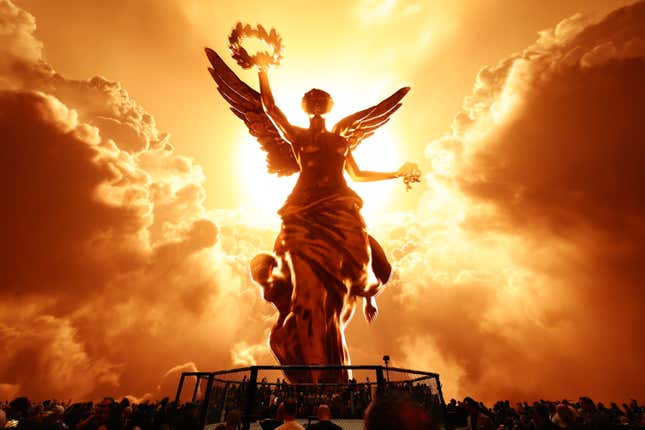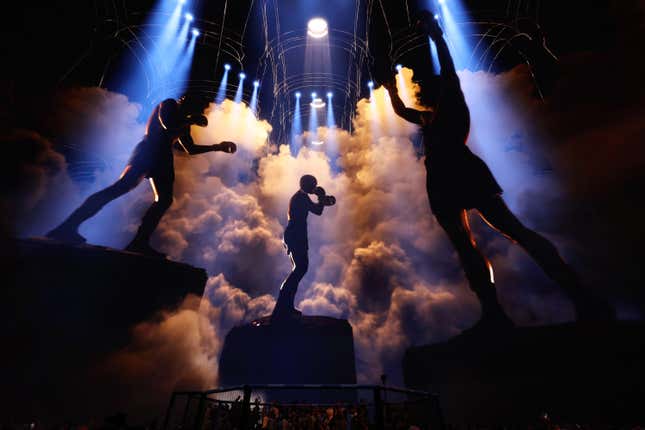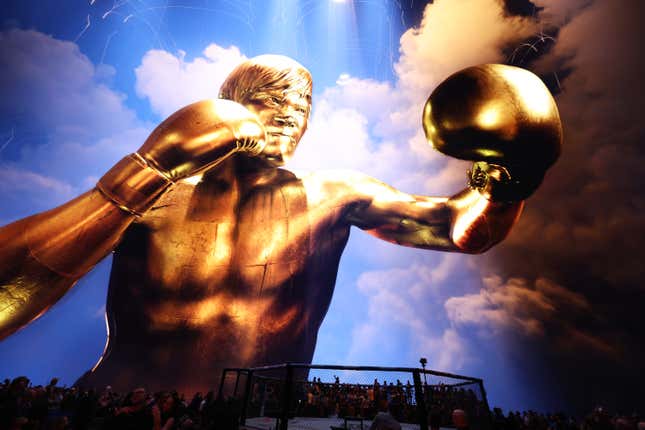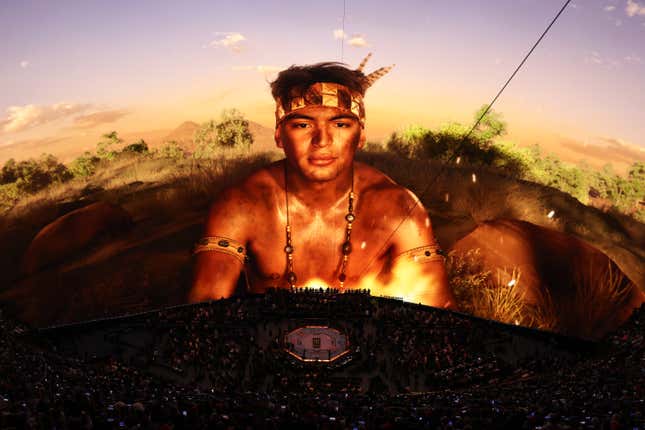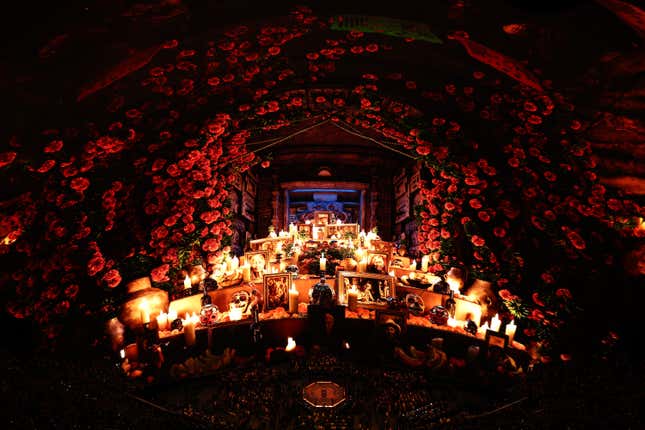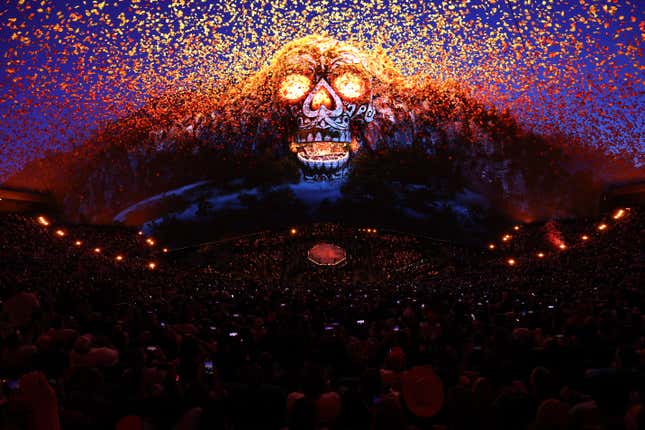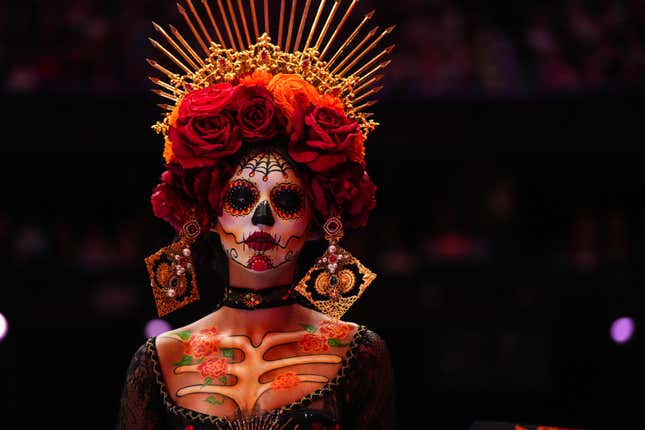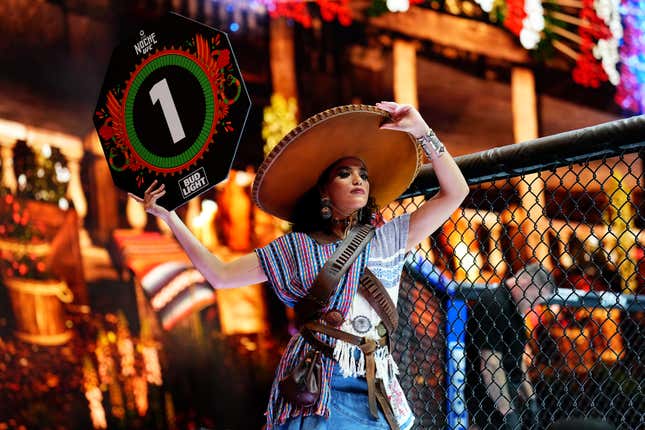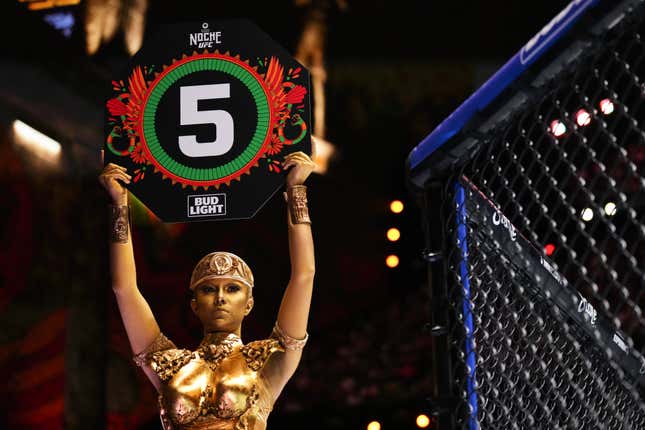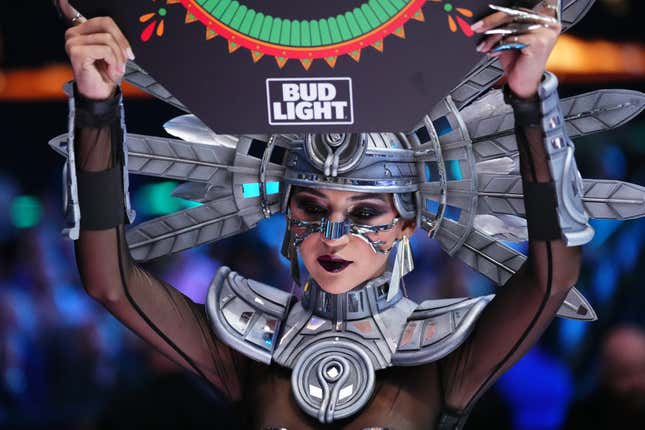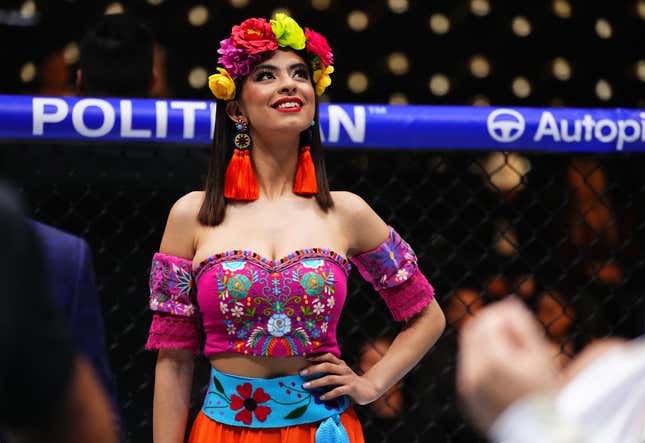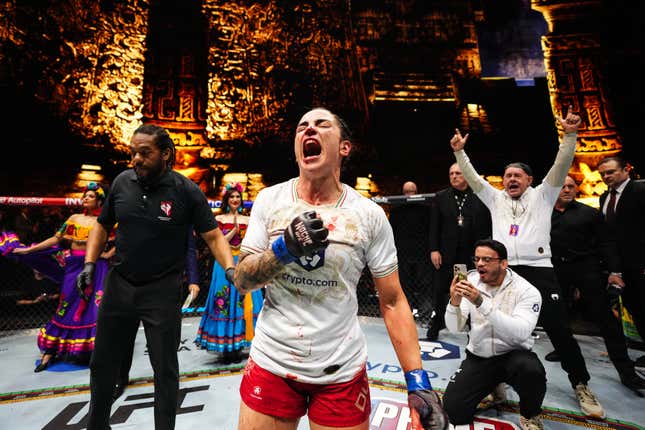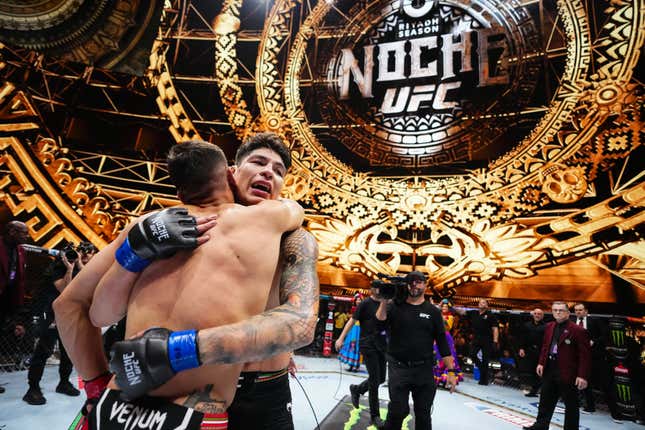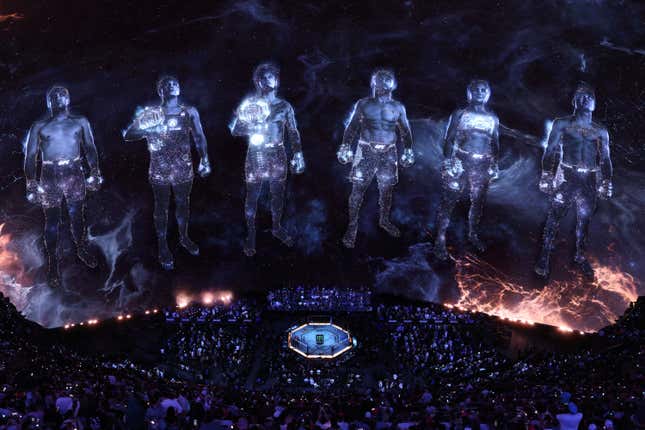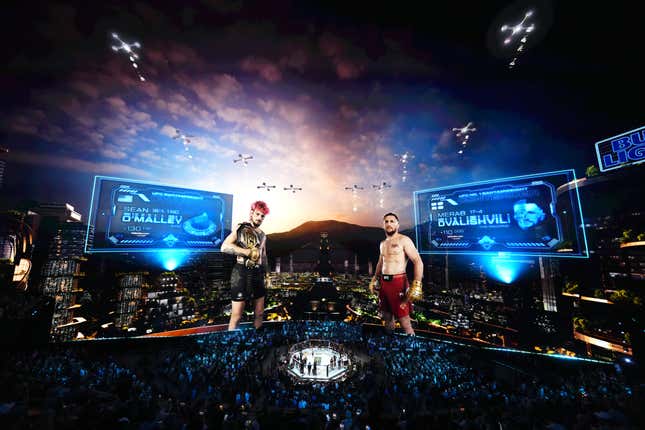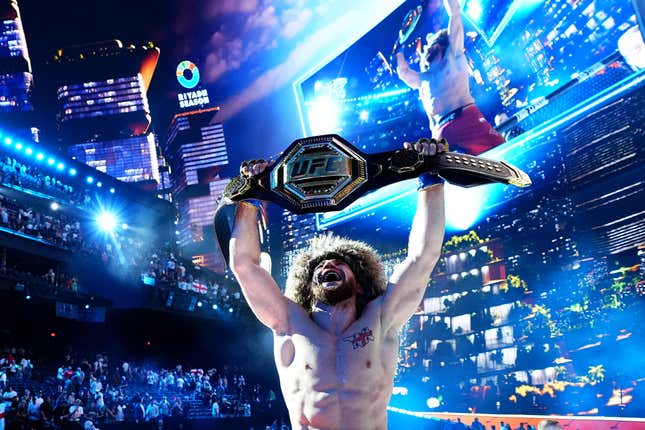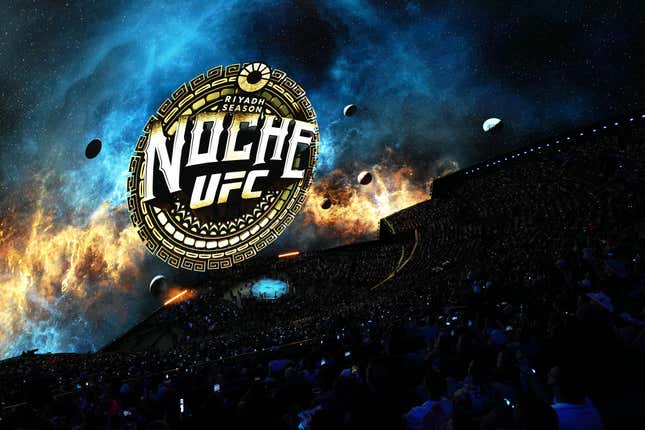
Something strange happened during the lead-up to Noche UFC, the promotion’s second annual celebration of Mexican Independence Day. For the first time since becoming interested in MMA during the McGregor era and falling in love with the sport during the pandemic, I skipped all of my UFC fight week traditions. I hadn’t tuned in to a single episode of Embedded, nor did I watch the press conference on Thursday or the ceremonial weigh-ins on Friday. And I certainly didn’t have my usual “one more sleep” jitters heading into Saturday. What’s clear to me now is my lack of enthusiasm was the result of the sort of uncertainty that leads to reservation rather than curiosity.
Almost everything about Saturday night’s card left me and other fans scratching our heads going into it, starting with its hodgepodge of a name: UFC 306: Riyadh Season Noche UFC. And then there was the star of the promotional buildup. No, not the homegrown, hype-machine-manufactured Sean O’Malley, and not even Mexico’s own Alexa Grasso, but rather The Sphere (or simply “Sphere,” as it was referred to throughout the broadcast). A Mexican-inspired Fight Night that somehow became a numbered pay-per-view presented by a Saudi Arabian festival series, boasting an arena as its main attraction, left me with questions that couldn’t be answered by the sights and sounds of a typical fight week. Instead, those questions were answered by the standard brilliance of the most production-savvy combat sports promotion this side of WWE.
When it was initially reported the cheapest seat in the house would cost over $2,000, I wondered if more impassioned Mexican and Mexican-American fight fans would be priced out in favor of casuals with cushy salaries and corporate credit cards. That concern was quieted once I heard the crowd pop for Raúl Rosas Jr. as he walked toward the octagon ahead of the night’s first prelim. I did my best Irish accent and asked who da fook is dat guy when I found out four fighters I’d never heard of were opening the main card. Lo and behold, those were the two most entertaining bouts of the evening, with Esteban Ribovics and Daniel Zellhuber earning Fight of the Night bonuses that could have just as easily gone to Ronaldo Rodríguez and Ode’ Osbourne. And, as Sean O’Malley took issue with himself at one point, I noted with interest, which soon soured into ambivalence, that the event’s venue was being promoted more heavily than the then-bantamweight champion at the top of its bill. I don’t know about him, but I understood why that was by the end of the night, as the suspense surrounding what a sporting event at The Sphere might look like paid off more abundantly than the one-way drubbing most educated fans correctly predicted he’d receive in the main event.
But above all, the main question I had before last night was why did the UFC’s first and potentially only appearance at The Sphere need to be on Mexican Independence Day? As Noche UFC neared, my thinking was that, presumably, an event headlined by the eventual return of either Conor McGregor or Jon Jones would have made for a greater pop cultural spectacle, International Fight Week would have led to less complicated branding, and UFC 300, which fans and pundits also made the mistake of underestimating, would have allowed for a deeper card. Again, the event itself convinced me of its merits in a way that no moment on Embedded or confrontation at a press conference could have prepared me for.
No alternative I had in mind for a more appropriate Sphere card would have resulted in the breathtaking storytelling of Noche UFC. The six interstitials produced by Oscar-winning filmmaker Carlos López Estrada’s Antigravity Academy made perfect use of The Sphere’s immersive capabilities, transporting audiences throughout Mexican history with images that inspired awe even through a TV screen. Ancient civilizations, heroic freedom fighters, spiritual traditions, iconic combat athletes, and the virtues of Mexican culture were all honored with Lucasesque light and magic. Eight first- and second-generation Mexican Octagon Girls strutted between rounds wearing stunning costumes inspired by their shared heritage.
The main event notwithstanding, the fights themselves lived up the pageantry of the night in ways only the drama of high-level MMA could, especially when booked in celebration of a culture’s fighting spirit. Minutes after a short film told the story of Indigenous warriors, the earliest people to fight for the land now known as Mexico, Mexican flyweight Ronaldo Rodriguez escaped two near-completed submissions and persevered his way to a unanimous decision over Ode’ Osbourne. Right after that, Mexico City-born Daniel Zellhuber battled Argentina’s Esteban Ribovics with the breakneck pace of a Street Fighter button-mashing, losing on the cards but winning over fans like me who were watching him compete for the first time. And despite a lackluster performance from former Women’s Flyweight Champion Alexa Grasso, I found myself on the edge of my seat seemingly once per round, attempting to will a tap from Valentina Shevchenko into existence.
Similar to 300 before it, there are images from UFC 306 that’ll be etched in my brain for the rest of my fandom; thrilling moments I would have never predicted when comparing the names on the card to the hyperbolic hype that preceded it.
I don’t know if Noche UFC turned out to be “the greatest sporting event of all time,” as UFC CEO Dana White promised in July. In his post-fight press availability, White admitted himself it’d be up to the public to decide if the night lived up to that claim. In general, I’m a bit allergic to making statements that grand. But what I will confess is Noche UFC was the most impressively produced televised sporting event I’ve seen with my own two eyes–better than any Super Bowl, NBA Finals, or WrestleMania I’ve ever watched.
It was a spectacle I couldn’t quite convince myself to anticipate, but one that I’ll never forget. If you’re still with me, scroll or click through the following photos for a look at what made the night so memorable.
